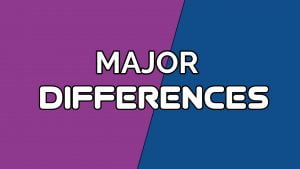The term “monarchy” and “republic” seems to be two distinct systems of government that also do not sound similar. But even at this, it can be very challenging to point out the differences between the two. Conversely, i thought it important to educate everyone by clearly highlighting the differences between Monarchical and Republican system of government. In doing this, I will be using the meaning, features or even types to explain how they are different from each other.

Also see: Best legal movies for lawyers and law students
Meaning of Monarchy
Simply put, a Monarchical system is a system of government which is under the rule of a King, Queen or Emperor known as the monarch. This ruler can be an absolute monarch who has unlimited powers or a constitutional monarch whose powers is limited by the constitution. In modern times, most countries operate monarchical form of government in which the monarch has limited power and therefore, performs ceremonial functions.
Monarch is usually based on heritage and not election. Thus, when the monarch dies, he or she is succeeded by his or her children and power is transferred from generation to generation.
Types of Monarchy
1. Absolute monarchy: This is the type of Monarchical system in which the monarch has unlimited powers. The monarch does not derive his powers from the constitution but rules by divine right. Tsar Nicholas ll of Russia, King Khaled of Saudi Arabia and Emperor Haile Salessie of Ethiopia serve as good examples of the absolute monarchs.
2. Constitutional monarchy: In this form of monarchy, the monarch has limited powers because he or she derives his or her powers from the constitution. As a result of this, the monarch is only a ceremonial or a figure head of state and a symbol of the nation.
The actual power of governing is rested in the elected representatives. Countries that adopt constitutional monarchical system of government include; Britain, Sweden, Denmark, Iran, Morocco, Saudi Arabia, Austria, Holland, etc.
Also see: Advantages and disadvantages of an unwritten and written constitution
Characteristics of Monarchical system of government
1. It is government by a King or Queen.
2. This form of government is hereditary.
3. It is based on age-long culture practices.
4. The monarch is the individual representative and organ of the supreme power.
5. Monarchy is a natural institution. Obedience to the monarch is as natural as obedience of a child to his parents.
Kindly watch the video below for detailed information of a Monarchical system of government.
Meaning of Republican system of Government
A republican government is that which has an elected Head of state by the people. That means that a sovereign state is referred to as a republic if the country has no traditional ruler or its Head of state but with the one chosen by the people with a fixed term of office. Such Head of state is known as president in a republic.
The president may be an executive president or a ceremonial president. Take for instance, In 1963, Nigeria became a republic with an elected head of state called president in the person of Dr. Nnamdi Azikiwe.
He was a ceremonial president because in a republican parliamentary system of government the president is a ceremonial Head of state while Head of Government who exercise the real power is the Prime minister, a post held by Sir Abubarkar Tafawa Balewa. Both presidential and parliamentary systems of government can be operated in a republic.
The president in a republican presidential system of government exercises executive powers and is both the Head of State and Head of Government. Nigeria operated the republican presidential system from 1979 -1983 otherwise called the second republic in which Alhaji Shehu Shagari the executive President was both the Head of State and Head of Government. Other republican states include USA, France, Ghana, Liberia, Senegal etc.
Also see: Differences between Cross-offers and counter-offers
Futures of a Republican system of government
1. The Head of state known as the president is elected by the people.
2. A republic must be politically independent.
3. Members of the legislature in a republic are directly elected by the people.
4. The functions of government in a republic are preformed by officials and not traditional rulers.
5. A republican constitution is entirely home made.
6. There exist political and legal equality in a republic.
7. Rule of law is an essential feature of a republic.
8. Popular sovereignty in which the ultimate power of the state rests with the people is another essential feature of a republic.
Kindly watch the video below for more explanation of a republican system of government.
Also see: How to answer law problem questions using IRAC method
Differences Between Monarchical And Republican system of Government

1. One of the difference between monarchy and republic is that in monarchy the Head of state is known as monarch or represented by the Governor-General while in republic the Head of state is known as the president.
2. Another difference is that the president in a republic is elected by the people, while the monarch in monarch comes to political power through hereditary right.
3. Also, while all members of the legislature in a republic are elected by the people, some legislators in a monarchy are appointed while others inherited their membership of the legislature.
4. Furthermore, in a monarchy, the monarch is believed to possess the divine rights to rule while in a republic, the principle of popular sovereignty which rests the ultimate political power of the country with the people applies.
5. In a republic, the constitution is entirely home made while in a monarchy the constitution may have some alien influence.
6. The principle of the rule of law is seriously adhered to in a republic while in a monarchy the principle of rule of law does not exist.

Edeh Samuel Chukwuemeka, ACMC, is a lawyer and a certified mediator/conciliator in Nigeria. He is also a developer with knowledge in various programming languages. Samuel is determined to leverage his skills in technology, SEO, and legal practice to revolutionize the legal profession worldwide by creating web and mobile applications that simplify legal research. Sam is also passionate about educating and providing valuable information to people.